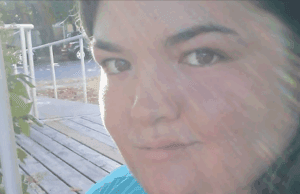SALEM, Oregon — The Oregon state Senate held a public hearing Monday for SB 1003, a bill that would expand Oregon’s “Death With Dignity Act” (DWDA) to make it easier for practitioners to end the lives of medically vulnerable people through assisted suicide.
The June 2 hearing for the bill, an amended version of a radical measure that drew swift pushback earlier in the session, was met with vigorous expressions of opposition from medical and mental health professionals and advocates for the medically vulnerable, including Oregon Right to Life political director Sharolyn Smith, Oregon Representative Werner Reschke, and Salem-based psychiatrist Dr. Satya Chandragiri, M.D., among others.
“What we’re facing is not a decision on ‘death with dignity,’ we’re facing a decision on death on demand,” Smith said in her Monday testimony before the state Senate, urging lawmakers to reject the bill.
Smith highlighted the fact that numerous efforts to expand Oregon’s DWDA have taken place since its initial passage in the 1990s. Moreover, data suggests that even without expansion, the existing law places medically vulnerable people at increasing risk.
According to the Oregon Health Authority (OHA)’s most recent annual report:
- DWDA prescriptions increased statewide by 8% in 2024 following a 30% jump in 2023
- Waiting periods are routinely waived (29% of cases in 2024)
- Patients are very rarely referred for psychiatric evaluation (physicians wrote 607 prescriptions in 2024 and referred only three patients for psychiatric evaluation)
- The ingestion status of some 178 patients (29% of those prescribed lethal drugs last year) was unknown to the OHA as of the annual report – suggesting that lethal cocktails may be dangerously available in households across the state
In written testimony, Smith also explained the issue SB 1003 deals with is a “deeply personal” one for her.
“My dad, according to the Death With Dignity Act, is the perfect patient to steer toward assisted suicide. He is disabled, has a history of medical complexities, lived with chronic pain for over 20 years, and recently received the terminal diagnosis of Frontotemporal Dementia,” she said. “He’s battled depression and suicidal ideation for as long as I have known him. I’ve worked tirelessly to affirm his worth and remind him that his life still matters. I cannot trust a medical system that would so easily undermine that message.”
“Oregon has worked hard to create better mental health programs, build resource awareness, and prevent suicide,” she continued. “Why is it different for those who are disabled, medically complex, or approaching the end of their life? It’s discrimination and a not-so-subtle message that these lives are not worth living… I urge you to reject SB 1003. ”
Originally introduced in February, SB 1003 has been amended to soften some of its more radical proposals following pushback. However, the amended bill would still reduce the 15-day waiting period to seven days; replace the word “physician” with “practitioner,” opening the door to later changes that would allow non-physicians to prescribe lethal drugs; and require institutions to advertise their DWDA participation on their websites or in written notice presented to patients.
“Instead of expanding assisted suicide, we should focus on real support — better palliative care, mental health resources, and a system that values every life,” Smith said in her written testimony.
To date, 427 individuals and groups from across the country, including a significant number of physicians, have submitted written testimony opposing SB 1003. Only 12 individuals have submitted testimony supporting the proposed legislation.
For media inquiries or interviews, please contact ORTL communications director Ashley Sadler at 503-683-3097 or ashley@ortl.org.




